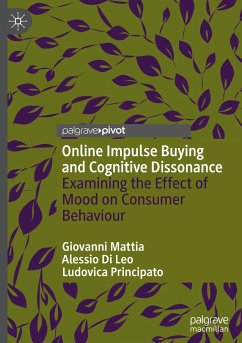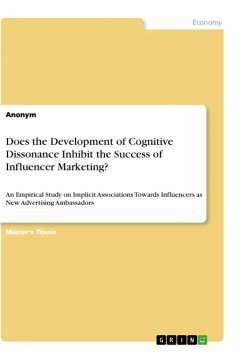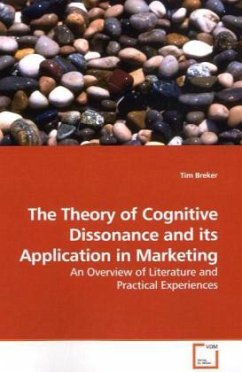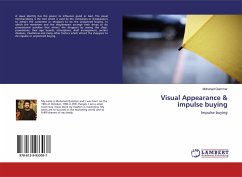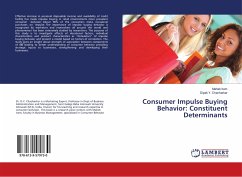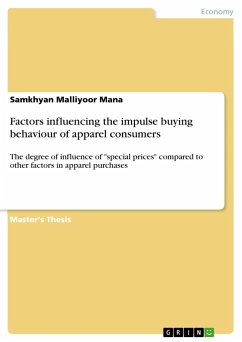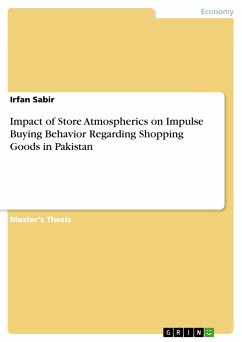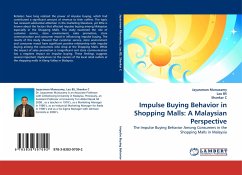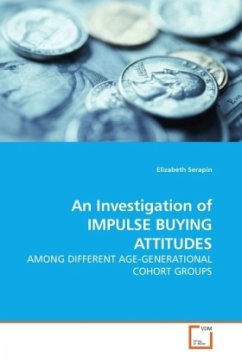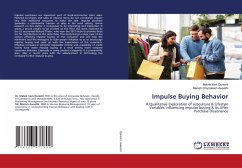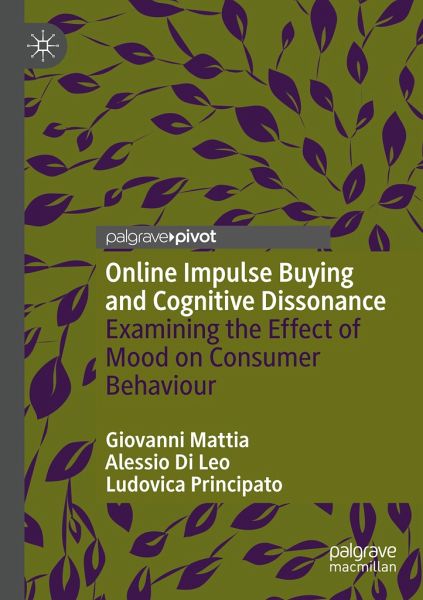
Online Impulse Buying and Cognitive Dissonance
Examining the Effect of Mood on Consumer Behaviour
Versandkostenfrei!
Versandfertig in 6-10 Tagen
64,19 €
inkl. MwSt.
Weitere Ausgaben:

PAYBACK Punkte
0 °P sammeln!
Consumers' beliefs and attitudes towards online sales significantly influence buying behavior on the internet. However, the impact of these thoughts and beliefs on the decision to make an online purchase is not direct. It can be moderated by the emotions experienced while browsing an e-commerce website. Impulse buying in particular is influenced by a number of factors, for example how stimulating the e-shopping platform is, and how easy it is to click on the cart a certain product, for instance a smartphone. But what happens after an online impulse buy is made? Often the customer can regret th...
Consumers' beliefs and attitudes towards online sales significantly influence buying behavior on the internet. However, the impact of these thoughts and beliefs on the decision to make an online purchase is not direct. It can be moderated by the emotions experienced while browsing an e-commerce website. Impulse buying in particular is influenced by a number of factors, for example how stimulating the e-shopping platform is, and how easy it is to click on the cart a certain product, for instance a smartphone. But what happens after an online impulse buy is made? Often the customer can regret the purchase and in the throes of anxiety, look for reasons to justify the choices made. Consumer behaviour scholars and pyschologists call this phenomenon cognitive dissonance, and certain individuals are more sensitive than others in developing this than others.
This book offers a deep investigation around online impulse buying and subsequent cognitive dissonance. Specifically, the authors present a research case study of a group of millenials who are shopping for smartphones to study whether an initial positive state can reduce the onset of cognitive dissonance in consumers. Based on substantial research and a sample of 212 impulsive millennial buyers, the book provides a comprehensive, but simple and synthetic framework of impulse buying, cognitive dissonance and positive affect state, highlighting their relationships.
This book offers a deep investigation around online impulse buying and subsequent cognitive dissonance. Specifically, the authors present a research case study of a group of millenials who are shopping for smartphones to study whether an initial positive state can reduce the onset of cognitive dissonance in consumers. Based on substantial research and a sample of 212 impulsive millennial buyers, the book provides a comprehensive, but simple and synthetic framework of impulse buying, cognitive dissonance and positive affect state, highlighting their relationships.





